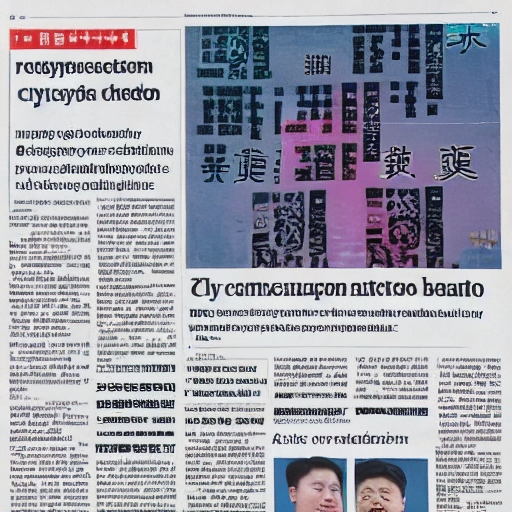In light of growing regulatory scrutiny elsewhere in the world, cryptocurrency founders—including Binance CEO Zhao Changpeng—are praising the Chinese government’s backing for Web3 and linking it to Hong Kong’s ambitions to establish itself as a global center for the industry.
Zhao, Justin Sun, an adviser to Huobi, and Yat Siu, the co-founder and chairman of Animoca Brands, all welcomed the report, Beijing Internet 3.0: Innovation and Development White Paper,” which claimed that the actions in Beijing and Hong Kong together indicate China’s growing support for Web3. Cryptocurrencies, which are prohibited in the mainland, are not mentioned in the report.
The CEO of Binance, often known as “CZ” in the business, tweeted images of the newspaper that the Beijing city government had published on Twitter on Sunday.
He tweeted on May 27 that the release of the Beijing government’s Web 3.0 white paper came at an interesting time, adding that Hong Kong’s new virtual asset laws comes into force on June 1. By Tuesday, the tweet had received more than 11,700 likes and 2.6 million views after being widely shared throughout the cryptocurrency community.
The study was presented at an industry roundtable on Sunday by the Beijing Municipal Science and Technology Commission. It covers a wide range of topics related to the next-generation internet, including blockchain, the metaverse, and artificial intelligence. The text is more than 100 pages long.
According to the white paper, “Internet 3.0 is a three-dimensional environment that combines the virtual and the real world with intensely immersive and interactive experiences. It is noted that the definition includes components from both the metaverse and Web3.
The assumption that each proposal will shape the internet’s future has been the subject of the hype throughout the past few years. The metaverse is intended to be a collection of online, 3D virtual environments that are interoperable.
The concept of Web3, on the other hand, is a decentralized web built on blockchain and related technologies. However, crypto assets like digital money and non-fungible tokens (NFTs) are frequently referred to as Web3 assets.
Regulations for retail cryptocurrency trading in Hong Kong will be finalized by SFC as of June 1
Along with artificial intelligence, semiconductors, and brain-computer interfaces, blockchain is just one of the major technologies for “internet 3.0” according to the Beijing government. A notable omission from the study is cryptocurrency, as the central government made it clear in September 2021 that dealing in such assets was prohibited in the nation. Despite this, the government has continued to support industry’s embrace and advancement of blockchain technology.
Binance and Huobi stopped allowing users to sign up with Chinese phone lines after the 2021 announcement.
Cryptocurrency creators with Chinese ties, who had fled the nation during earlier crackdowns, are nevertheless applauding the Beijing white paper as encouraging news. Some in the sector rely on regulatory change in Hong Kong to help end a protracted crypto winter and even spark a new bull run, and that the city would serve as a hub for Chinese cryptocurrency activity.
In a retweet of CZ’s post over the weekend, Huobi’s Sun—who also built the blockchain platform Tron—said that China’s “commitment” to Web3 represents a huge step towards realizing the revolutionary potential of decentralized systems and blockchain-based solutions.
Yat Siu tweeted that China released the paper with the intention to… promote the #web3 business after Hong Kong had already started pushing it 6 months ago! Yat Siu is the founder of the blockchain unicorn Animoca, which also runs the metaverse platform The Sandbox and offers virtual parcels of land.
Both CZ and Sun have run into trouble with the law in the US as the regulatory focus on the cryptocurrency business grows internationally. For marketing unregistered securities, Sun was sued by the Securities and Exchange Commission (SEC) in March.
The Commodity Futures Trading Commission filed a lawsuit against Binance and CZ in the same month, alleging that the company was running an illicit exchange with a “false” compliance plan.
In a lawsuit filed the same month, the Commodity Futures Trading Commission identified Binance and CZ as defendants, stating that the business was running an illegal exchange with a “sham” compliance program.
The SEC has filed lawsuits against numerous businesses and people over the past few years for the sale of crypto assets that it deemed to be securities. Entrepreneurs in the cryptocurrency space have criticized the murky regulatory landscape in countries like the US, where there is no formal law governing these assets.
Because of this, some view the developments in Hong Kong as encouraging, hoping it represent a softening of China’s position on cryptocurrencies. Siu from Animoca stated his opinion that there is a connection between the policies in Beijing and Hong Kong.
According to Siu via email, it signifies what Hong Kong has always been: a financial hub that serves as the gateway and financial intermediary into and out of China. Digital assets will function in a similar manner. They think that Hong Kong will see a talent and innovation boom driven by the promise of Web3 and has a chance to lead in this field not just locally but also globally.
CZ referred to CCTV’s portrayal of Hong Kong’s new crypto policy last week as “a big deal” that would trigger a bull run. The report was removed by CCTV the following day.













